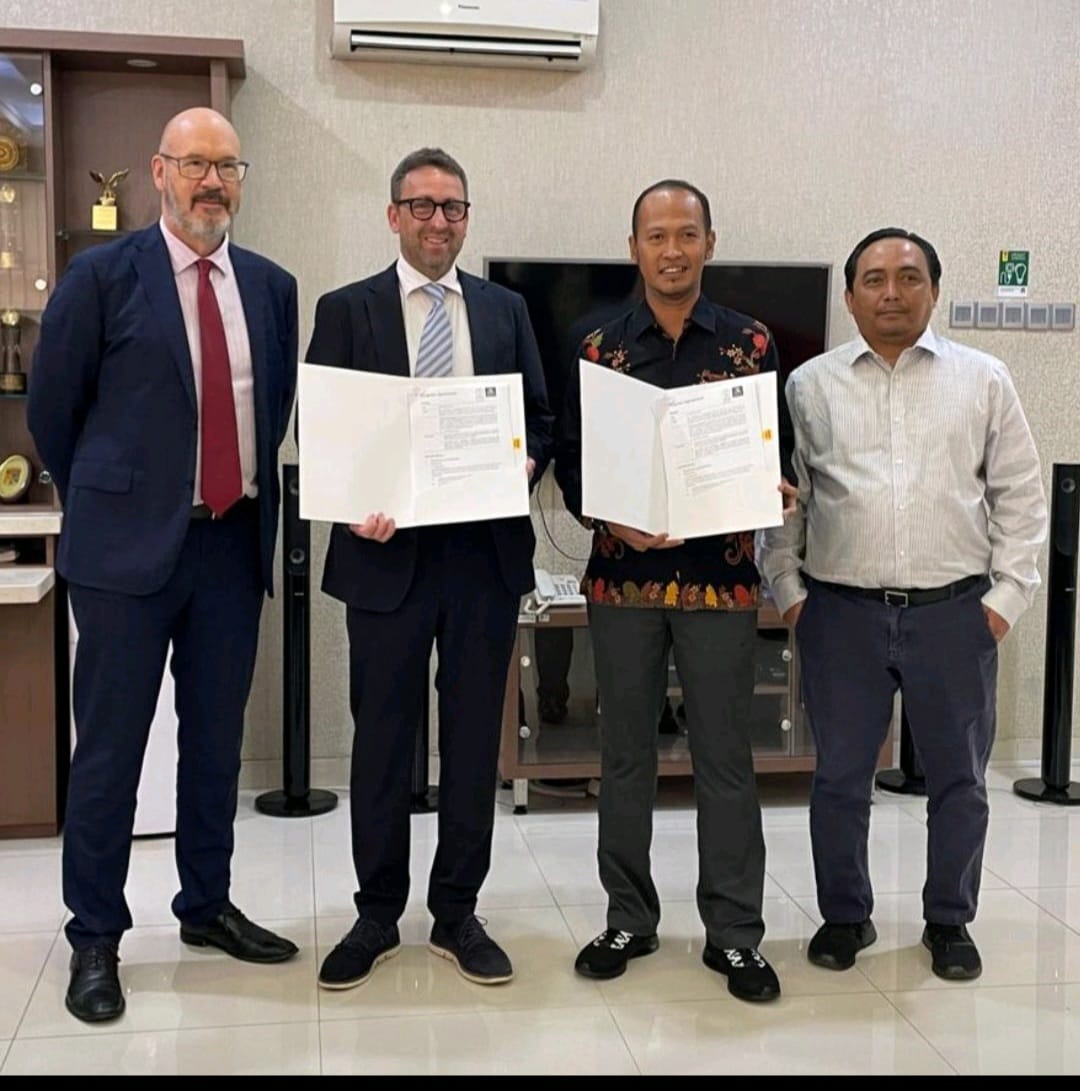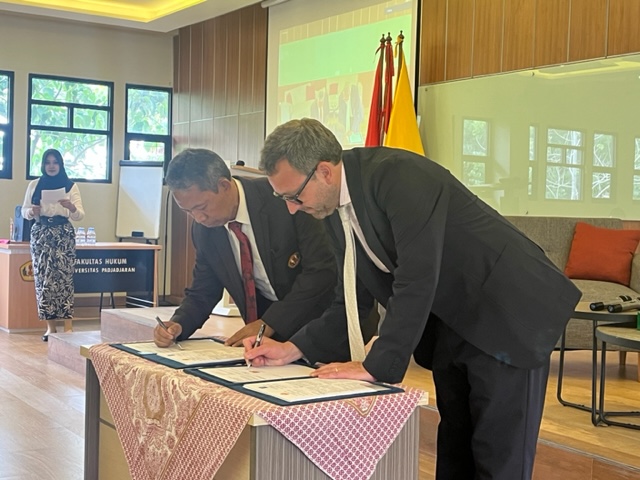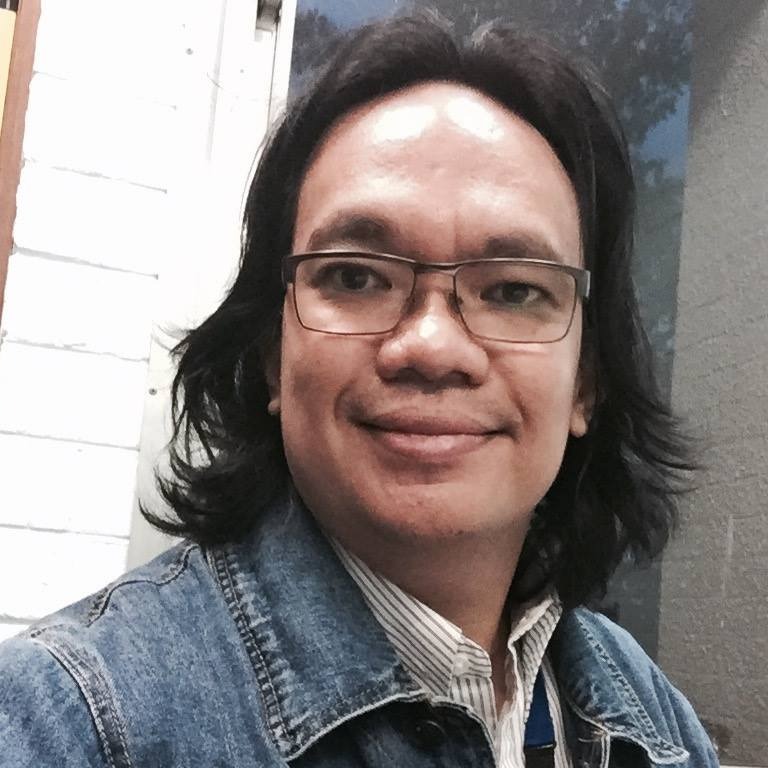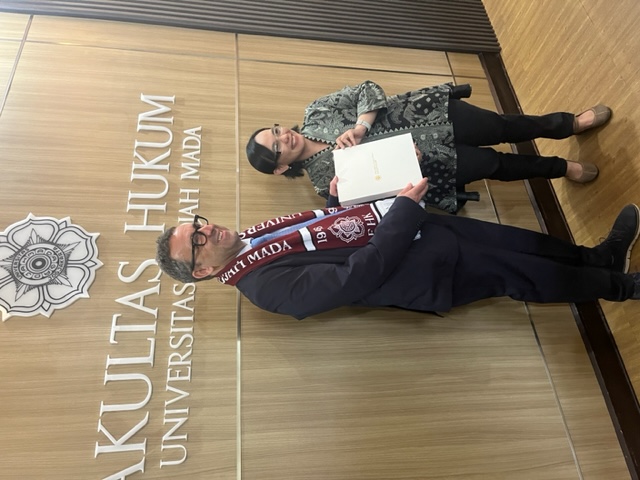Research Grants
| CILIS Member(s) | Year(s) | Type of Grant | Title | Collaborator(s) | Amount |
|---|---|---|---|---|---|
| Tim Lindsey | 2023-2025 | ARC Discovery Project | Obstacles to Contract Enforcement in Indonesia | Nadirsyah Hosen (Monash) Jeremy Kingsley (University of Western Sydney) | $392,482 |
| Tim Lindsey | 2023 | Miegunyah Distinguished Visiting Fellowship Program | Human Rights, Democracy and the Rule of Law in Indonesia | Professor Jimly Asshiddiqie | $16,280 |
| CILIS Member(s) | Year(s) | Type of Grant | Title | Collaborator(s) | Amount |
|---|---|---|---|---|---|
| Tim Lindsey | 2022 | MLS Impact Booster and Communication Grant | Boosting Asia Impact: the Australian Journal of Asian Law and the Indonesia at Melbourne Blog | $2,000.70 | |
| Tim Lindsey | 2019 | University of Melbourne Award for Excellence in Engagement - Public Value | $10,000 | ||
| Tim Lindsey | 2017 | MLS International Collaboration Fund | Women and Islamic Law in the Philippines | $10,000 | |
| Tim Lindsey | 2016-2018 | ARC Discovery Award | Islam, Law and the State in the Philippines | Kerstin Steiner (Monash University) M.B. Hooker | $200,100 |
| Tim Lindsey | 2014 | Melbourne-Asian Century Visiting Fellowships Program | Visit by Dr Todung Mulya Lubis, 2014 | Todung Mulya Lubis | |
| Tim Lindsey | 2014 | Miegunyah Distinguished Visiting Fellowship Program | Visit and Public Lecture by Professor Jamhari Makruf, 2014 | Jamhari Makruf | |
| Tim Lindsey | 2010-2014 | ARC Discovery Award | Drugs, Law and Criminal Procedure in Southeast Asia: A Comparative Analysis | Pip Nicholson | $281,000 |
|
Tim Lindsey Kelly McDermott Kathryn Taylor | 2008 | Collier Charitable Fund Grant | Revealing Islam to a New Generation | ||
| Tim Lindsey | 2006-2013 | ARC Federation Fellowship | Islam and Modernity: Syari'ah, Terrorism and Governance in South-East Asia | $1,581,110 | |
| Tim Lindsey | 2006-2009 | ARC Discovery Grant | The Media and ASEAN Transitions: Defamation Law, Journalism and Public Debate in Indonesia, Malaysia and Singapore | Amanda Whiting Andrew Kenyon Tim Marjoribanks (Sociology Program) | $335,000 |
| Tim Lindsey | 2005-2007 | ARC Discovery Grant | Islamic Law in Contemporary Malaysia, Brunei and Singapore: The Anglo-Malay Madhhab | $170,000 | |
| Tim Lindsey | 2002-2004 | ARC Discovery Grant | Islamic Law in Contemporary Indonesia | M.B. Hooker (Australian National University) | $139,270 |
| Tim Lindsey | 1999-2001 | ARC Large Grant | Asian Laws in Transition, 1945-1995 | M.B. Hooker (Australian National University) Veronica Taylor Min Aun Wu | |
| Tim Lindsey | 1997 | Special Initiative Grant (SPIG) | Bibliographic Catalogue of World English-language holdings on Asian Laws |
ARC project: Obstacles to Contract Enforcement in Indonesia
Foreign investment in Indonesia has consistently failed to meet targets, largely due to concerns about the lack of reliable and just judicial contract enforcement. This project aims to investigate why predictable and fair contract enforcement in Indonesia is so inaccessible, particularly for foreign investors, and, through doctrinal and empirical research, explain the causes of this situation. In partnership with Indonesian courts and lawyers, it also aims to support the development of legal and policy reform proposals that can help resolve Indonesia’s commercial contract enforcement problems and encourage Australian investment there.
People
Project Supervisor
Chief Investigator

Centre for Indonesian Law, Islam and Society
Partnerships with Indonesian Universities


Workstreams
1. Indonesian Contract Law (led by Professor Lindsey)
This workstream will investigate all relevant doctrinal elements of contract law, including language provisions and choice of forum clauses. The aim will be to develop a comprehensive account of the status of the law encompassing all relevant regulations and key court decisions, and, where relevant, legal scholarship. This workstream will begin the process of identifying aspects of Indonesia’s contract law regime that contribute to poor enforcement and possible reforms that respond directly to these findings.
2. Decision Archive (led by Dr Hosen and Dr Lindsey)
This workstream is concerned with recording the outcomes of contractual disputes by creating an archive of court decisions (at all levels, from district courts to the Supreme Court) and, where possible, documenting the enforcement of these court decisions. The Supreme Court of Indonesia maintains a large online database of decisions, but it is recognised as being incomplete and very unreliable. The creation of this new archive will therefore involve systematically reviewing the local court records (district courts and provincial high courts) and then carefully reviewing decisions of the Supreme Court. Completing this task for all 34 provinces would not be realistic so we have identified three representative provinces that reflect Indonesia’s ethnic diversity and rural/urban divide: Indonesia’s largest urban centre and national capital, Jakarta; the urban cultural centre of Yogyakarta in central Java; and the heavily rural outer island province of Nusa Tenggara Barat/NTB). A core objective of this workstream will be to identify common problems in judicial decision making that lead to poor enforcement of contracts, along with potential reforms. The archive it produces is central to this project but will also become a valuable resource for research by other scholars in the future.
3. Courts in Action (led by Dr Kingsley)
This workstream will investigate how commercial disputes are mediated and/or decided. What is the role of lawyers, clerks of court and judges in this process? By observing hearings, and the operation of courthouses, it will test the findings of the other workstreams by observing the operation of lower courts where trials take place. Three courts will be selected for this purpose. The first will be in the capital Jakarta, the nation’s commercial, political and legal centre. The second will be in Yogyakarta, a busy provincial capital in heavily populated central Java. The third will be in Mataram (the capital city of NTB Province), located on the more remote, less populous island of Lombok in poorer eastern Indonesia. Selecting courts in these three locations will mean that the project findings are more representative of Indonesia’s extraordinary economic and social diversity, while ensuring the project is feasible. In the course of the observations, findings emerging from the first two workstreams about obstacles to contract enforcement and possible reforms will be tested against actual judicial practice.
4. Lawyers’ Perspectives (led by Dr Hosen and Dr Kingsley)
This workstream will investigate the perceptions legal practitioners have of contract enforcement, focusing on their understandings of its strengths and weaknesses. In order to interpret these insights, we will undertake a survey of over 120 commercial lawyers in Jakarta. We shall then undertake 12 in-depth semi-structured interviews. The twelve lawyers selected will include law firm partners (at least half) and Associates or Senior Associates. Together they will represent 10% of the overall survey sample and will provide us with detailed explanations of how junior and senior lawyers understand contract enforcement. Each interview will last one to one and half hours (or longer, if necessary). We will also undertake informal interviews with judges and clerks of court as part of Workstream 3. While these interviews will be open-ended, they will test findings emerging from the other workstreams about obstacles to contract enforcement against the perceptions of judges and lawyers engaged in this work on a daily basis, and seek their engagement in developing appropriate reform models. The rationale for this workstream being focused purely on Jakarta is that major corporate law firms in Indonesia are almost exclusively based there. There is very limited commercial legal representation beyond Jakarta, and Jakarta lawyers commonly travel to provincial centres to represent local clients.




